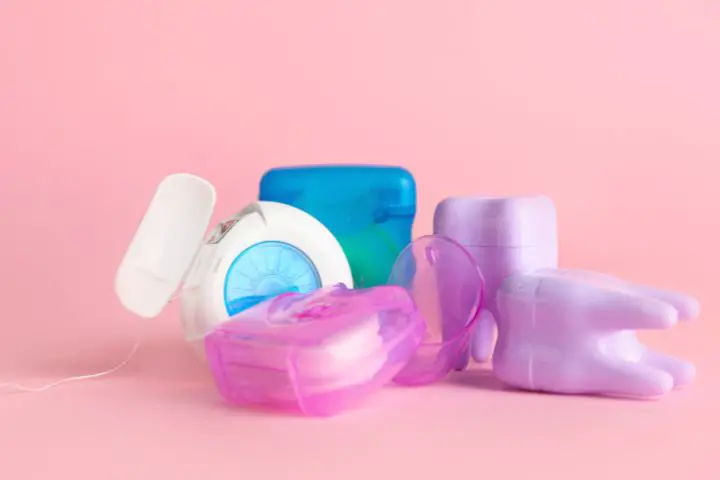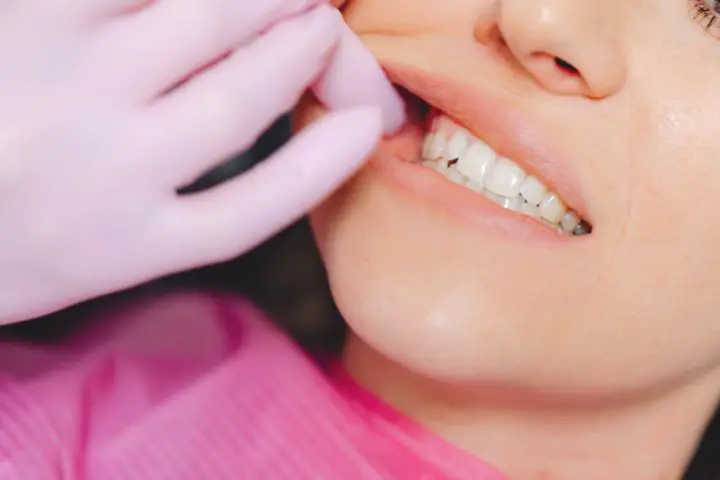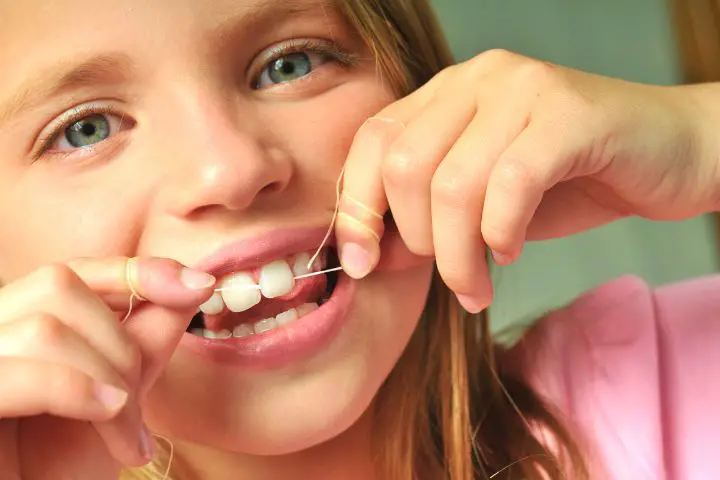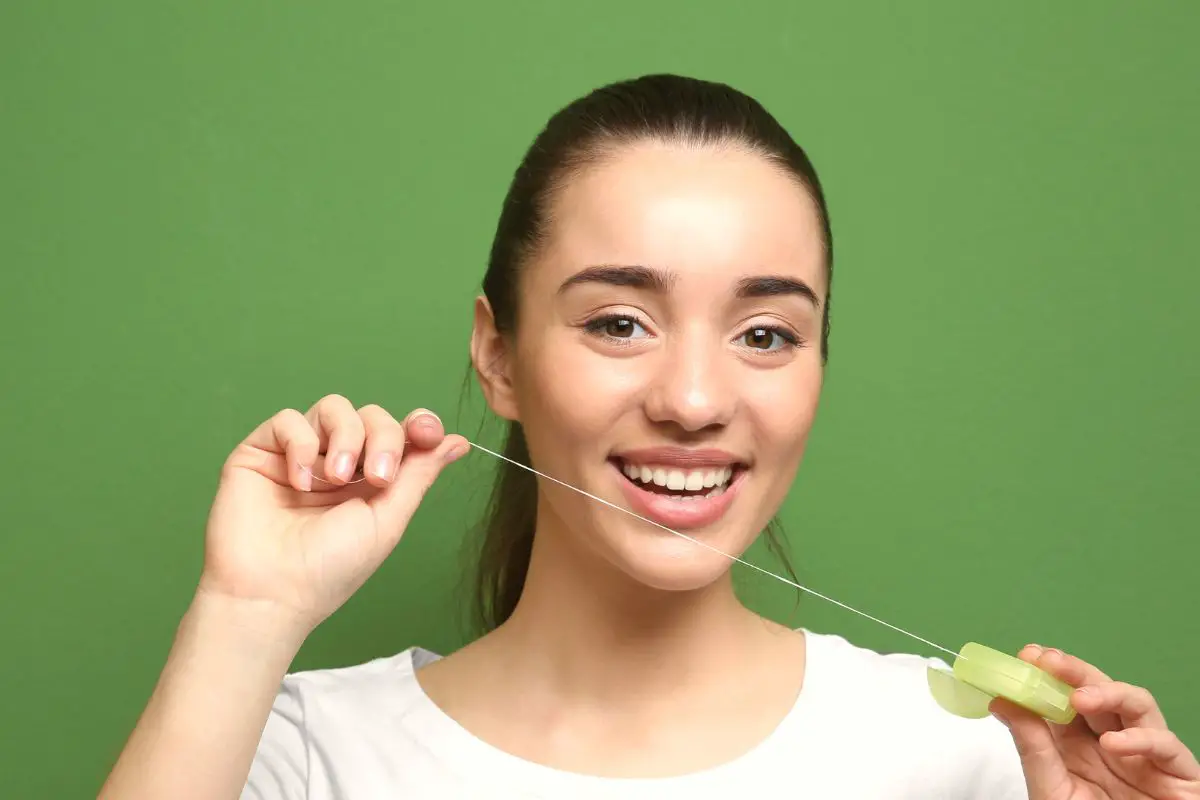Is Dental Floss Sustainable? | + eco-friendly dental hygiene options
Flossing is an important part of a healthy oral hygiene routine. In a poll the American Dental Association did, around 61% of the participants revealed they use their fingernails to floss, with 14% using safety pins, and finally, 7% sharing they use hair strands to scrape food from their teeth.
It’s surprising enough, but all of these alternatives to traditional dental floss are more eco-friendly!
Related articles: Best Bamboo Toothbrush and Eco Friendly Electric Toothbrush
However, the burning question crops up as many people make the switch over to eco-friendly toiletries and products for home and health care: is dental floss ever sustainable?
In the past, it was a misconception that all dental flosses could never be sustainable because they require a lot of resources to produce.
Is Traditional Dental Floss Sustainable?
Since nylon provides the firmness and rigidity that enable the thread to pass through your teeth without damaging the gums, typical dental floss does not degrade. In addition, various chemicals are added to the string to ease the thread in through the teeth. These chemicals may affect the environment as they decompose.
Today, however, there are now many eco-friendly flossing options available.
So why not give it a try? It may not seem like much, but every little bit helps when it comes to reducing our environmental impact.

What are some alternatives for nylon floss?
It’s important to choose dental floss that is gentle on your gums and doesn’t contain any harmful chemicals. There are many brands of eco-friendly dental floss available, so you can find one that fits your needs and budget.
Types of eco-friendly dental floss:
Some great alternatives for floss include using bamboo or organic cotton flosses, using reusable dental picks, and opting for waxed instead of unwaxed dental floss.
- Cottonseed fibre is one of the most popular types of eco-friendly dental floss because it’s both affordable and environmentally friendly. It’s also gentle on teeth and gums, making it a good choice for people with sensitive oral tissue.
- Bamboo dental floss is another popular option, as it’s strong enough to remove plaque but still gentle enough to be used by those with sensitive gums. It also has a natural anti-bacterial property, so it helps keep your mouth healthy overall. Bamboo plants also improve the environment through:
- Improving soil quality, preservation and health
- Minimizing pollution, soaking up carbon dioxide
- Supplying a lot of oxygen during their development

- Cornstarch dental floss is perfect for people who want an economical option that’s still environmentally friendly – cornstarch is made from renewable resources like crop waste, so you can feel good about using it every day without harming the environment in any way.
- Silk floss is another great option in significantly lessening your environmental impact and the threat you pose to marine life. It is entirely biodegradable because it is 100% natural! There is no need to compromise with this option, as it is equally sturdy and useful for maintaining dental hygiene as regular floss.
However, even if it is biodegradable, you should still avoid flushing it down the toilet because it can still entangle marine life, which entirely negates the whole aim of using eco-friendly floss.
- Charcoal floss (also technically made from bamboo) is a new, trendy option. Tthough some CO2 emissions will be produced during the creation of this charcoal, bamboo is a more sustainable wood source that re-grows quickly and seems like a better choice than plastic.
There are quite a few sustainable dental floss options with compostable floss picks. These “sustainable” options are usually made with combinations of biodegradable thread fibres and environmentally friendly floss holders, and can take a maximum of upto 6 months to compost.
Is eco-friendly floss better than traditional floss?

Dental floss is often seen as a waste product, but there are many benefits to using eco-friendly floss over traditional floss. Not only is dental floss more sustainable because it uses less plastic, but it also eliminates the need for harsh chemicals that can damage teeth and gums. In addition, eco-friendly floss is often made of plant fibers which are gentle on the teeth and gums.
Though there are many benefits to using eco-friendly dental floss, there are also some drawbacks: most notably, these products tend to be less strong and may not be as effective at removing debris from between teeth.
Additionally, if the string becomes damaged or tangled it may be difficult to remove it without causing further damage to your teeth or gums. Finally, some people find that other materials (like synthetic fibers) smell better than eco-friendly versions of dental flosses.
Water Flossers versus String Floss
Oral irrigators or dental water jets are other names for Waterpik water flossers. To remove food particles, bacteria, and plaque from between teeth and below the gum line, water flossers use a pressurised stream of pulsating water. For those who find it difficult to manoeuvre and use string floss, such as people with arthritis, Waterpik may be simpler to use than regular floss.
Waterpiks are helpful for getting into periodontal pockets that may be brought on by early gum disease, tightly spaced teeth, and difficult-to-reach areas of the mouth. Additionally, they can keep your breath fresher for longer periods of time.
Finding their most comfortable water temperature and power setting may involve a learning curve for some people. At the end of the day, it’s the fact that they’re more difficult to control, wasting water and not very effective that keep them on the lower rung of options after sustainable dental floss.

Is Sustainable Dental Floss Better for My Health?
Traditional dental floss is coated in per- and polyfluoroalkyl substances in addition to nylon (PFAs). Teflon and food packaging are only two of the many products manufactured with these synthetic compounds. They enable floss to slide smoothly between teeth, but they are highly expensive. they build up in the body of a person and are connected to a number of medical conditions, including:
- higher levels of cholesterol
- renal and liver damage
- cancer
- interruption of both reproduction and development
- Immune system problems
Given these effects, it should come as no surprise that biodegradable dental floss has quickly become a popular eco-trend.
What impact do other types of dental floss have on the environment?
There are many types of dental floss on the market today, and each one has its own environmental impact. Some synthetic fibers, like nylon dental floss, can take a long time to decompose in the environment, can take hundreds of years to break down. This means that they can linger in soil and water for a long time, potentially causing damage to wildlife or contributing to climate change. Other types of dental floss, like cotton floss, are biodegradable and release less energy when they break down.
However, they still need to be disposed of properly – either through composting or recycling – so their impact on the environment is minimal. Ultimately, it’s important to choose an environmentally friendly dental floss option if you care about preserving our planet’s resources.
How can I make the change to eco-friendly floss?

There are a few sustainable practices you can adopt when it comes to dental floss. For example, using biodegradable materials like bamboo or cotton instead of synthetic materials is a great way to reduce your impact on the environment.
Additionally, choosing floss with less plastic packaging can help save resources. Finally, always remember to recycle your used dental floss containers to help reduce waste.
By choosing an environmentally friendly option like this, you’re helping to preserve valuable resources and protect wildlife habitats. Additionally, using eco-friendly dental floss is often more comfortable than traditional options, which can help reduce toothaches and gum pain.
FAQs
Is Flossing All that Important?
Flossing removes plaque and food particles from between your teeth, which means that you’re less likely to develop tooth decay or gum diseases such as gingivitis and periodontitis. In addition, flossing can help you keep your breath clean and fresh.
How Often Should I Floss?
As much as it pains us all to add another step to our nighttime routines, when all we’d like to do is go to bed, dental floss is an essential part of maintaining a sparkling smile. Flossing should be done at least once a day, preferably after meals, to ensure optimal mouth health.
Is Eco-friendly Floss Effective?
There are many eco-friendly dental flosses available that are gentle on the environment that are just as effective as traditional options. These flosses are great at preventing plaque and tartar build-up, all while saving the environment!
Can I Make My Own Eco-friendly Floss?
Yes! There are a number of ways to make your own eco-friendly floss. You can use organic cotton and linen fibers or plant based waxes for the string. If you are looking for an all-natural option, try using bamboo fibre instead of nylon.





